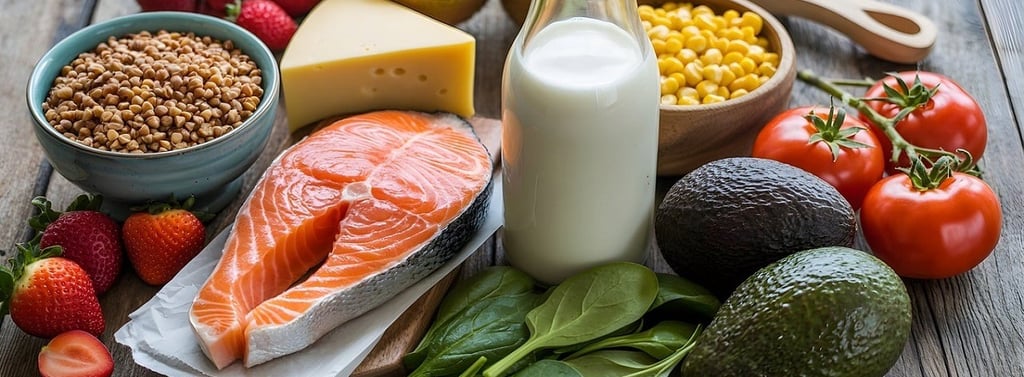How to Boost Testosterone Naturally?
High testosterone levels can improve muscle mass, sex drive, and memory. A healthy lifestyle and nutritious food can boost testosterone naturally. Read this article to learn more!


Testosterone is a steroid hormone produced by the testicles; it's a primary sex hormone in men. It is responsible for the growth of reproductive organs in men, increasing sex drive (libido), and the production of sperm.
Testosterone also provides the masculine characteristics like a deep voice, muscle mass, strength, and facial and body hair. It also stimulates the formation of red blood cells.
Females also produce testosterone in their ovaries, but the levels are way lower than those in men.
Adrenal glands, located at the top of the kidneys, also produce dehydroepiandrosterone (DHEA), which the body converts into testosterone and estrogen (female sex hormone).
A low level of testosterone in men can cause reduced sex drive, low sperm count, erectile dysfunction, increased body fat, decreased muscle mass, and poor memory and concentration.
In this article, we will explore how to naturally boost testosterone through diet and simple lifestyle adjustments.
1. Weight Management


Overweight or obesity is one of the leading causes of low testosterone. Fat accumulation around the tummy or Belly fat increases an enzyme called aromatase, which converts testosterone into estrogen (female sex hormone). An increased estrogen level in men can cause enlarged nipples, depression, reduced sex drive, and infertility.
To find if you have a healthy weight, calculate the Body Mass Index or BMI by dividing your weight in Kg by height in meters squared. Ensure your BMI is under the ideal range, which is 18.5 to 24.9 for men. If your BMI is above the ideal range, losing weight can help increase your testosterone levels.
2. Foods that Increase Testosterone


Consuming foods rich in nutrients such as protein, zinc, magnesium, vitamin D, and healthy fats can boost testosterone levels.
Various testosterone-boosting foods include salmon, sardines, dark leafy vegetables like kale and spinach, dark chocolate, avocados, eggs, red meat, berries, cherries, prawns, mussels, onions, garlic, ginger, pomegranates, oysters, almonds, cashews, and peanuts.
3. Take Proper Sleep
A lack of sleep can significantly lower testosterone levels. Studies have shown that men who don't get 7 to 9 hours of sleep daily have lower testosterone levels.
Follow a proper sleep schedule, avoid using mobile devices and laptops during bedtime, keep the sleeping room dark, don't consume late-night dinners, and avoid consuming coffee before bedtime.
4. Exercise


Certain types of exercises, such as weight lifting and high-intensity interval training (HIIT), are quite effective in boosting testosterone levels.
Studies have found that chopping wood is one of the best activities to increase testosterone levels. It can boost testosterone levels by 47%.
Avoid excessive cardio workouts, as they may cause a decrease in testosterone levels.
5. Avoid Stress
Prolonged stress increases the production of cortisol (a stress hormone), which decreases testosterone levels in the body.
Meditation and yoga can help reduce stress. Read motivational books, laugh more, and surround yourself with positive people.
6. Avoid Foods that reduce testosterone levels
Studies have shown that overconsumption of foods such as breads, pastries, alcohol, mint, licorice roots, soy products (tofu and edamame), nuts, flax seeds, vegetable oils, and processed foods can lower testosterone levels.
7. Increase Vitamin D levels
Vitamin D plays an important role in boosting testosterone levels. A lack of vitamin D in the body can cause lower testosterone levels and erectile dysfunction.
You can increase vitamin D intake by having sunlight exposure of at least 5 to 30 minutes and consuming vitamin D-rich foods like fatty fish ( salmon and mackerel), mushrooms, and egg yolks.
You can also take vitamin D3 supplements to increase your vitamin D levels.
8. Limit Alcohol consumption


Excessive consumption of alcohol can reduce testosterone levels and also cause a lower sex drive and erectile dysfunction.
Alcohol disrupts the functioning of glands ( hypothalamus, anterior pituitary gland, and testes) responsible for testosterone production.
Avoid alcohol or limit its consumption to not more than 2 drinks a day.
9. Avoid Opioid Painkillers
Opioid drugs are derived from opium poppy plants. They act as a painkiller. Higher doses of opioids can reduce testosterone levels.
Morphine, oxycodone, and fentanyl are some of the commonly used opioid painkillers.
10. Prevent the development of Diabetes


Type 2 diabetes can severely lower testosterone levels. Continue to monitor your blood glucose levels and prevent the development of diabetes.
11. Avoid Xenobiotics
Xenobiotics are harmful chemical substances that are not naturally present in the body but are introduced from external sources.
Some of the xenobiotics include Bisphenol A (BPA), found in plastics; phthalates, also found in plastics and lubricants, as well as shampoos; and Organophosphates, found in pesticides and herbicides.
Avoid the use of plastic containers in the microwave, drink water from bottles labelled as "BPA-free", and consume more organic products.
12. Eat Healthy


Consume a balanced diet with protein, healthy fats, and carbohydrates. An unhealthy and nutrient-lacking diet can lower testosterone levels.
Many athletes and overweight people follow a calorie-deficient diet. A prolonged calorie-deficient diet can reduce testosterone production, as the body prioritizes survival over testosterone production.
